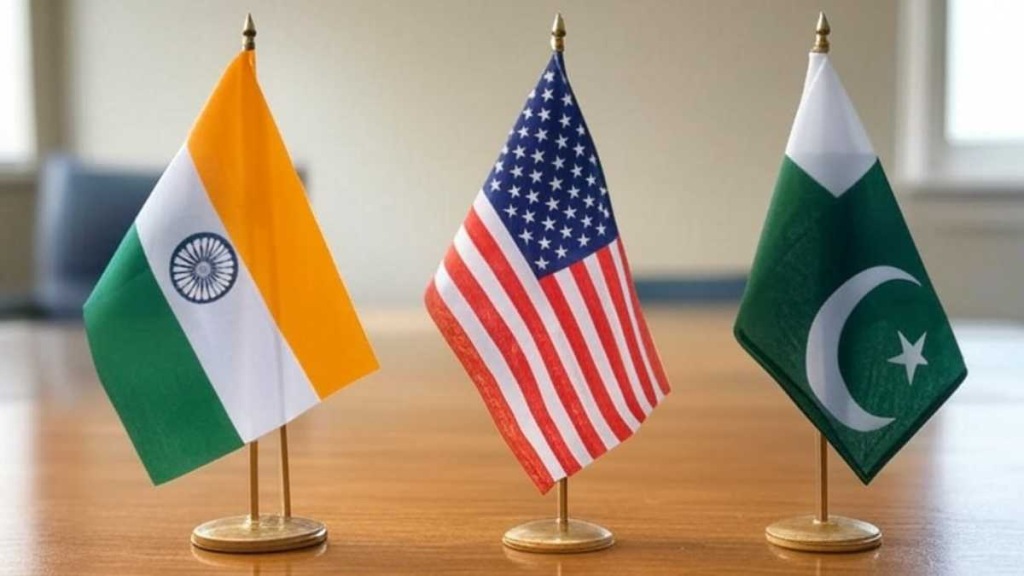In the immediate aftermath of the Pahalgam terror attack, the United States voiced strong support for India. President Donald Trump condemned the “heinous act” and promised justice. US spy chief Tulsi Gabbard and House Speaker Mike Johnson echoed this sentiment, assuring full cooperation in India’s fight against terrorism.
But even as Washington reaffirmed its solidarity with New Delhi, diplomatic activity behind the scenes tells a more complex story — one involving renewed military engagement with Pakistan.
Pakistan’s Air Force Chief Meets US Officials
On July 2, Pakistan Air Force Chief Zaheer Ahmed Baber Sidhu held high-level talks in Washington with US defense officials and lawmakers. The meetings spanned the Pentagon, State Department, and Capitol Hill, and focused on strengthening bilateral defence cooperation, joint training, and technology sharing.
Sidhu met with US Air Force Chief of Staff Gen. David W Allvin, Kelli Seybolt (Secretary of the Air Force for International Affairs), and senior officials from the State Department’s political-military affairs and South Asia bureaus. He also met with US Congressmen Mike Turner, Rich McCormick, and Bill Heizenga.
According to a Pakistan Air Force statement, the visit was a “strategic milestone” aimed at addressing key regional and global security issues while enhancing institutional ties.
Military Hardware on Pakistan’s Shopping List
Analysts suggest that Sidhu’s visit was also driven by Islamabad’s intent to acquire US military hardware, including:
F-16 Block 70 fighter jets
AIM-7 Sparrow air-to-air missiles
HIMARS rocket systems
This follows India’s Operation Sindoor, which reportedly exposed the vulnerabilities of Pakistan’s Chinese-made defence systems. Indian strikes are said to have bypassed and destroyed HQ-9P and HQ-16 surface-to-air missile batteries during counteroffensives.
Trump Hosts Pakistan Army Chief for Lunch
Just two weeks prior, President Trump hosted Pakistan Army Chief Gen. Asim Munir for a private luncheon at the White House on June 18. While the details remain undisclosed, Trump’s meeting with Munir — who allegedly nominated him for a Nobel Peace Prize — marks a significant shift in tone.
This outreach contrasts sharply with Trump’s 2018 position, when he suspended aid to Pakistan and accused it of providing safe havens to terrorists. His administration had previously described Pakistan as giving the US “nothing but lies and deceit.”
The Tactical Nature of US-Pakistan Engagement
From military alliances during the Cold War to the post-9/11 partnership, US-Pakistan ties have always been transactional. Experts believe Washington’s renewed engagement is driven by strategic concerns, including counterterrorism in Afghanistan and containing China’s influence.
Lt Gen (Retd) Syed Ata Hasnain explains it the best in an Indian Express column, “Trump’s outreach to Pakistan is tactical, not strategic. Pakistan offers geographical leverage, not long-term alignment.”
Should India Be Concerned?
India remains America’s preferred partner in the Indo-Pacific, with growing economic and security cooperation. Yet, Washington’s dual-track diplomacy — supporting India while courting Pakistan — could blur lines that were once clearly drawn.
The key for New Delhi will be to stay alert, engage diplomatically, and reinforce its strategic value to the United States — while watching Islamabad’s next moves closely.
